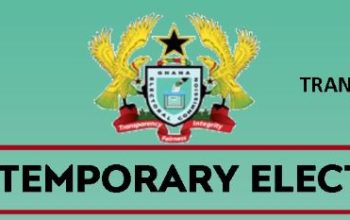Browse and explore the e-levy charges on all electronic transactions, exemptions as well as most frequently asked questions and answers among Ghanaians.
Table of Contents
E-Levy FAQs in Ghana
What is E-Levy?
The E-Levy is a tax imposed on electronic transfers and charged at the time of the transfer apart from those excluded by law.
When will we start paying the E-Levy?
This will be implemented on 1st May 2022.
What is the rate of the E-Levy?
The rate is 1.5%
Why has Government decided to levy electronic transfers?
- To enhance domestic tax mobilisation and expand the tax base.
- To provide an opportunity for everyone to contribute towards national development.
Who is responsible for charging the E-Levy?
The entities responsible for charging the Levy are;
- Mobile Money providers like MTN Momo, Vodafone Cash, AirtelTigo Money, Zeepay, GCB G-Money and Yup Ghana, etc.
- Payment Service Providers (PSPs). They include eTranzact, JuniPay, Korba, Nsano etc.
- Banks like Consolidated Bank Ghana (CBG), Agricultural Development Bank (ADB), etc.
- Specialised Deposit-Taking Institutions (SDIs) such as rural and community banks and savings and loans companies, finance houses etc.
- Other Financial Institutions prescribed by Regulations.
How to Check Your MTN, Vodafone, Airteltigo And Glo SIM Number in Ghana
When will the E-Levy be charged?
When a person makes a transfer, the charging entity will add the Levy to the transfer amount and charge the person’s wallet or bank account.
Who will be collecting the E-Levy?
The Ghana Revenue Authority (GRA) will collect and account for the Levy.
Are utility and airtime payments subject to the E-Levy?
No, once the payment is a specialised merchant payment made through a government designated system, the transfer amount will not attract the Levy.
Are foreign or inward remittances subject to the Levy?
No, remittances are excluded from the Levy.
Will Point-Of-Sale (POS) transactions attract the E-Levy?
No, as long as the POS transaction is a payment to a commercial establishment registered with the GRA for income tax or VAT purposes, The Levy will not apply.
Will Cash-In and Cash-Out for Mobile Money attract the E-Levy?
No, both Cash-in and Cash – out are not subject to the E-Levy.
If a private school is paying its teachers and casual workers via mobile money, will the E-Levy apply?
Transfers from the school’s corporate mobile money merchant wallet to teachers and casual workers via mobile money will attract the Levy.
However, the school is allowed to claim the levy as an allowable expense in its income statement.
Will mobile money wallet balances attract the E-Levy?
No, mobile money wallet balances will not attract the Levy. The Levy applies only when there is an electronic transfer from your mobile money wallet.
Will mobile money merchant (agent) account transfers attract the E-Levy?
No. Transfers among principals, master-agents and agents will not attract the E-Levy.
Who will pay the E-Levy?
Everyone who uses electronic means of sending money through mobile money or bank accounts.
How much will we pay for the E-Levy?
The E-Levy is 1.5% of all cumulative daily transfers of more than GHS 100. For example, if a person sends GHS 50 for the first time during the day, and then sends another 50 (totaling GHS 100), they will not be charged. However, any amount transferred after that on the same day will be charged with the E-Levy.
Will we pay more charges for Vodafone Cash Transactions?
Sending money to other Vodafone Cash numbers and other networks is still free, however, the E-Levy charges will apply.
Who is collecting the E-Levy?
The Government of Ghana through the Ghana Revenue Authority (GRA) in collaboration with Mobile Money Operators, Payment Service Provider (PSP), Banks and special deposit taking institutions
Is there a threshold for the E-Levy?
There is no threshold for the E-Levy. The rate is 1.5% for all transactions that qualify/fall under the stated groups
Will I pay E-Levy for withdrawing cash??
No, you will not pay the E-Levy for withdrawing cash
Will Vodafone be absorbing the tax?
No, Vodafone will not be absorbing the tax.
Will salaries be taxed?
This is being reviewed.
Will Vodafone still do free P2P?
P2P on Vodafone is still free, however the E-Levy tax will apply.
What happens when you have to do a reversal, will you pay the tax as well?
Reversals are allowed and the tax will also be reversed. Transactions done within 48 hours can be reversed on the same day. Timelines are yet to be shared for reversal requests received after 48 hours of initiating the transaction.
Is E-Levy charged on transactions to and from Merchant numbers?
Transactions to merchants are exempt for phase 1. Merchants are advised to register with GRA and obtain a tax clarence certification to qualify for an exemption in phase 2.
Do I pay for the E-Levy if I send money from my Vodafone Cash account to my own bank account and vice versa, even though I have linked my Vodafone Cash account with my bank account?
If your bank account is linked to your Vodafone Cash account, you will not pay the E-Levy on transactions to the linked account.
If I make a first P2P transaction of GHS 80 and a second P2P transaction of GHS50, will E-Levy be charged on the total GHS 50 in the second transaction or just on the GHS 30 which is above the daily limit of GHS 100?
The charge should be on the GHS 30 excess of GHS 100.
If I make a one-time transaction of GHS 120, will E-Levy be charged on the total GHS 120 or just for the GHS 20 which is above the daily limit?
The charge should be on the GHS 20 excess of GHS 100.
How is the tax applied on transactions from 3rd party portals? Example, using a third-party platform.
All Payment Service Providers (PSPs) are charging entities and are required to apply the tax similar to how Vodafone will apply the tax.
Is E-Levy going to be charged when I make bill payments like fixed broadband, ECG and GWCL with Vodafone Cash?
If these billers are in good standing with GRA, and have been vetted and approved, you will not be required to pay the E-Levy.
Will I pay E-Levy if I buy airtime or data using Vodafone Cash?
No, the E-Levy does not apply to Airtime or Data purchases.
Can someone else pay for my E-Levy charges?
Another person cannot pay your E-Levy charges as the tax is deducted at the time of the transaction.
Do you have an E-Levy bundle?
We do not have an E-Levy bundle.
Will companies who pay staff via Vodafone Cash after their Payslips have been deducted for income tax already be charged the E-Levy? E.g., will my GHS 200 salary paid onto my Vodafone Cash account be charged if I am to send it to another person?
Yes, you will still pay the E-Levy as long as you are transferring to another individual’s wallet.
Will I be charged if I am to do multiple transactions of less than 100 cedis but sums up to more than GHS 100?
Yes, you will pay the E-Levy on the transactions that exceed the cumulative GHS 100
Are transactions limited to only money transfers or encompasses utility payments also
Utility payments made via the Ghana.gov website and GRA approved payment channels will not incur the E-Levy
Money transfers between accounts owned by the same person. (Please how we can confirm the exemption, is it in relation to other network registration details)
The system is currently unable to identify two wallets belonging to the same customer, and so transfers will be charged the levy; however, customers can make a claim for reversal once they can prove ownership of both accounts.
How do I get back my E-Levy money when the transfer is reversed?
Reversal of the E-Levy charge can be done if the reversal is initiated within 48 hours.
Will my wallet balance attract the E-Levy?
No, your wallet balance will not attract the E-Levy.
Will I pay the E-Levy for sending money from another country to a Vodafone Cash account in Ghana?
No, foreign remittances are excluded from the E-Levy.
NB: Information above is subject to change based on directives from Ghana Revenue Authority (GRA).
What Transfers Fall Under The E-Levy?
The following transfers fall under the E Levy:
- Mobile Money transfers done between wallets on the same electronic money issuer– For example sending money from your MTN Momo wallet to another person’s MTN Momo wallet.
- Transfers from a wallet on one electronic money issuer to a recipient on another electronic money issuer – For example sending money from your Vodafone Cash wallet to another person’s AirtelTigo wallet.
- Transfers from bank accounts to mobile money wallets: For example, Kofi transfers money from his CBG bank account to Ama’s G-Money wallet.
- Transfers from mobile money wallets to bank accounts: For example, Esi transfers money from her Zeepay wallet to Yayra’s bank account.
- Bank transfers on an instant pay digital platform or application which originates from a bank account belonging to an individual: For example, Kwame transferring money from his ADB account using the ADB app to Akua’s National Investment Bank account.
What Transfers Are Not Covered By The E-Levy?
The following transfers are excluded from the E Levy:
- Cumulative transfer of GHS 100 per day made by the same person using mobile money: Everyone will be able to send up to GHS 100 a day without paying the Levy.
- Transfer between accounts owned by the same person: If you are sending money to your own account, you will not be charged the E-Levy provided your bank or mobile money accounts are linked with your Ghana Card PIN. For example, a transfer from Kofi’s AirtelTigo wallet to her MTN wallet or from her Fidelity bank account to her Prudential bank account or from her Cal Bank savings account to her current or investment account will not attract the Levy because Kofi has linked all accounts with her Ghana Card.
- Transfers for the payment of taxes, fees, and charges: Any payment of taxes, fees or charges made using the Ghana.gov platform or other designated Government of Ghana payment systems will not attract the Levy.
- Electronic Clearing of Cheques: Clearing of cheques by banks and Specialised Deposit-Taking Institutions such as Savings and Loans companies, etc. will not attract the Levy.
- Specified Merchant Payments: Transfers made through an electronic payment service (mobile money, bank application, FinTech platform, etc.) to a commercial establishment which is registered with the Ghana Revenue Authority for the purposes of Income Tax or Value Added Tax are excluded.
- Transfers among principal, agent, and master-agent accounts: To avoid charging the Levy multiple times, transfers among principal, agent, and master-agent are excluded from the Levy.





